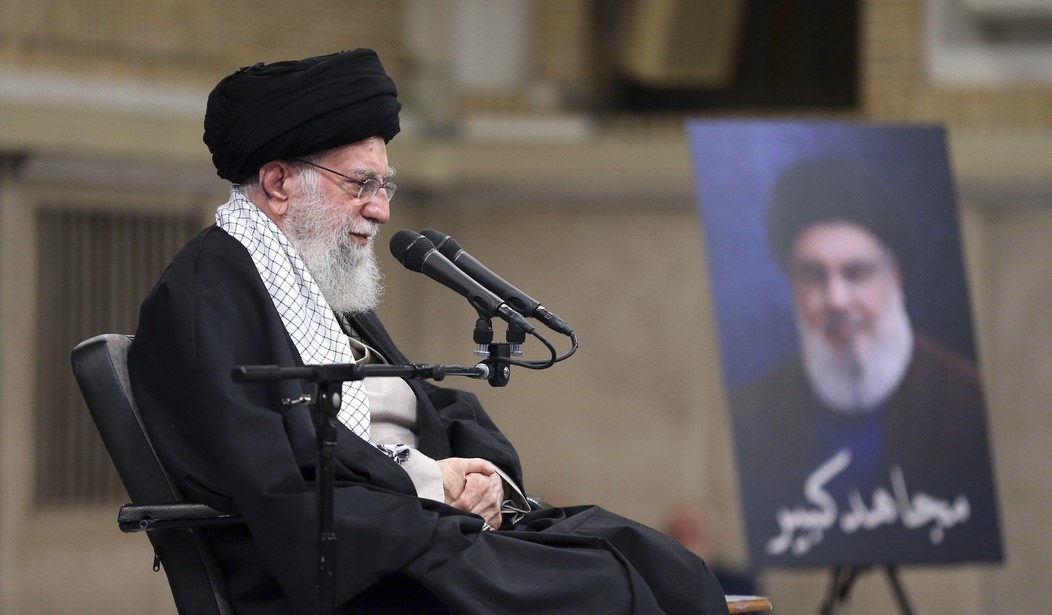Will Israel achieve its goal of regime change in Iran? Or will an age of darkness and cold do it instead?
Iran sits on some of the most expansive energy reserves in the world, both in oil and natural gas. Had they spent the last two decades developing those fields rather than nuclear weapons, perhaps Iranians would be able to turn on the lights and the heat this winter. Instead, the teetering mullahcracy faces a potentially destabilizing energy crisis, right when they face other pressures related to their decisions in their conflict with Israel:
Government offices in Iran are closed or operating at reduced hours. Schools and colleges have moved to online only. Highways and shopping malls have descended into darkness, and industrial plants have been denied power, bringing manufacturing to a near halt.
Although Iran has one of the biggest supplies of natural gas and crude oil in the world, it is in a full-blown energy crisis that can be attributed to years of sanctions, mismanagement, aging infrastructure, wasteful consumption — and targeted attacks by Israel.
The "targeted attacks by Israel" are just a handy excuse for the regime, and not much of one at that. Israel attacked those targets because Iran decided to change strategy and attack Israel directly in the larger war after the October 7 massacres. The Iranians found out the hard way that the Israelis were better equipped and had better intelligence despite being the much smaller nation -- a David against a Goliath, as it were, especially with Bashar al-Assad in the way. Even then, Israel largely avoided the energy industry in its attacks at the behest of Joe Biden, who for some reason wants to preserve the mullahs' grip on Iran.
"Targeted attacks by Israel" will be the regime's excuse for their own incompetence. Not that it seems to be working with ordinary Iranians this time:
For most of last week, the country was virtually shut down to save energy. As ordinary Iranians fumed and industrial leaders warned that the accompanying losses amounted to tens of billions of dollars, Mr. Pezeshkian could offer no solution other than to say he was sorry.
While the mullahs have poured billions of dollars into their nuclear-weapons program and even more billions into its proxy terrorist networks, they have allowed their traditional energy industry to crumble. The regime has now reached the eating-the-seed-corn stage of collapse, where rationing now takes energy away from actual energy production in order to prevent the collapse of residential service in the short run:
The government faced two stark choices. It either had to cut gas service to residential homes or shut down the supply to power plants that generated electricity.
It chose the latter, as turning gas off to residential units would come with serious safety hazards and would cut off the primary source of heat for most Iranians.
Winter has only just started. Tehran's average high temperatures in December are around 50 degrees, with average lows in the 30s. The average low temperature will not rise above 60 degrees until May. That's five months of energy rationing for both gas and electricity in a nation that should easily be a net exporter, and that assumes that Iranian industry will survive to rebound once cold weather departs and energy can be rationed in a different direction.
The Iranians can't blame that on sanctions, either, nor on the Israelis. That is a failure of investment, the result of throwing away a fortune on Hezbollah and theocratic adventurism. Even if Iran can't export these energy resources, nothing prevented them from building the infrastructure to make full domestic use of their massive natural gas and oil reserves. The mullahs chose terrorism over their own people.
With that in mind, perhaps Ali Khamenei should consider that Donald Trump might be doing them a favor with a new "maximum pressure" campaign:
President-elect Donald J. Trump will encounter an Iran that is suddenly far more brittle than it was during his first administration, its leadership more uncertain, its nuclear program more exposed and vulnerable to attack.
That new reality has touched off an internal debate about how his administration should approach Tehran: with an openness to negotiations, or with an attack on its nuclear enrichment program — overt or covert, or perhaps initiated by Israel.
Or, as many suggest, a round of “coercive diplomacy” that leaves Tehran to choose either a negotiated disassembly of its nuclear capability, or a forced one.
The mullahs' best bet for survival is to end its attempts to dominate the region by force and start investing in its own infrastructure. That's clearly true even without Trump leading another crippling economic war against Tehran, but even more true with that as background. Forty-five years of theocratic imperialism has landed Iran in a new and literal Dark Age, and it won't be long before the restive Iranian people take this choice out of their hands.








Join the conversation as a VIP Member